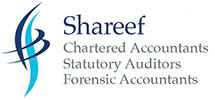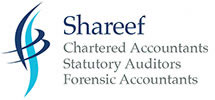HMRC chief urges thousands to check NI record
In a recent statement HMRC’s chief executive has flagged a problem affecting the NI records of tens of thousands of taxpayers. The trouble concerns anyone entitled to child benefit between 1978 and 2000. What steps are needed to correct the problem?

Parents looking after children are entitled to adjustments to their NI record to ensure they don’t lose out on state pension entitlement. However, tens of thousands of people who claimed child benefit between 1978 and 2000 could be receiving too little in state pension because their NI records were not adjusted for home responsibilities protection (HRP). We initially reported this back in October 2024, but the scale of the problem appears to be greater than first thought. HRP reduced the number of qualifying years of NI contributions needed for the pre full basic state pension. While NI records were automatically adjusted between 6 April 1978 and 5 April 2010 (when HRP was replace by NI credits), prior to May 2000 many child benefit claimants didn’t provide their NI number meaning they may not have benefited from HRP. According to the government’s latest figures the average total loss to date of state pension for each person affected is over £7,850.
Those who claimed child benefit between 1978 and 2000 should check their NI records to see if they are eligible to make a claim for HRP. HMRC has also produced a short video about HRP on LinkedIn if you’re unsure as to what it relates to.
Related Topics
-
Deadline to pay Class 1B NI
-
Do you need to pay tax on loyalty points and cashback?
You’ve been making business purchases on your personal credit card and reaping the rewards in the form of airmiles and cashback. What, if anything, do you need to do to keep on the right side of HMRC?
-
Welsh government plans to tweak relief for buyers
The draft Welsh Budget 2026/27 confirmed there would be no changes in the rates of land transaction tax. However, it did reveal some related changes are being planned. What’s the full story?



 This website uses both its own and third-party cookies to analyze our services and navigation on our website in order to improve its contents (analytical purposes: measure visits and sources of web traffic). The legal basis is the consent of the user, except in the case of basic cookies, which are essential to navigate this website.
This website uses both its own and third-party cookies to analyze our services and navigation on our website in order to improve its contents (analytical purposes: measure visits and sources of web traffic). The legal basis is the consent of the user, except in the case of basic cookies, which are essential to navigate this website.